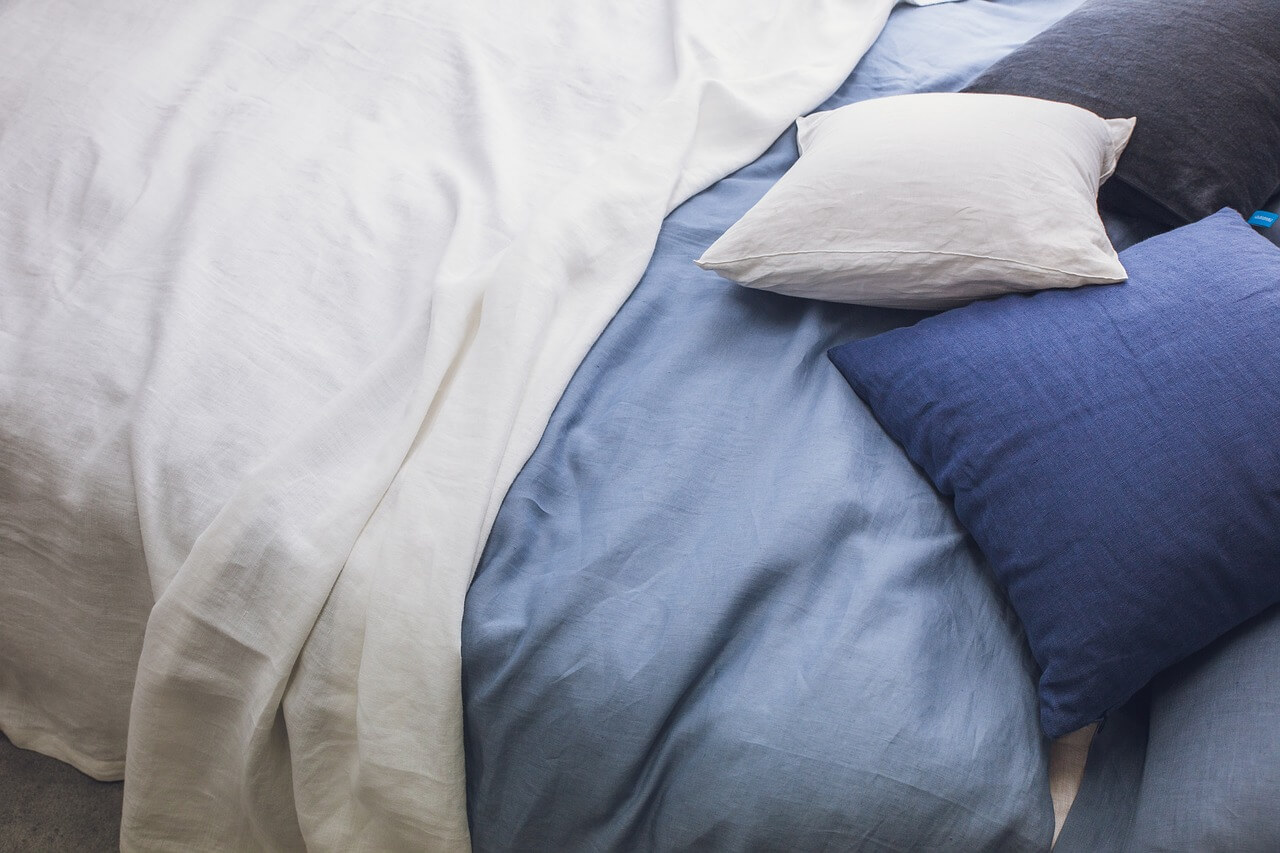Natural fabrics like cotton, silk and wool are the best for people who sleep hot or experience night sweats.
They are better than synthetic fabrics such as polyester.
So a wool duvet should keep you cool and cozy at night.
If you find yourself sweating when sleeping under a wool duvet, it could be an issue with the type of duvet, your body or the kind of bedding you are using.
Here are some reasons your wool duvet is making you sweat.
Less breathable type of wool

There are over a dozen types of wool including Merino, cashmere and Alpaca wool. These varieties have different levels of breathability.
For instance, camel wool is more insulative than many other types of wool. So a camel wool duvet may feel a bit warm and make you sweat.
It’s a wool blend duvet
When blended with other fibres, especially synthetic fibres, wool can lose some of its breathability.
A wool and polyester blend duvet may feel warmer than a pure wool duvet, making you sweat more.
If you want a wool blend duvet, look for those that contain a blend of two natural fibres such as wool and silk or wool and cotton.
Since the other fibre is also naturally breathable, the duvet is unlikely to make you sweat.
You are heat sensitive
In most cases, the duvet is not the problem. It’s you.
You may have heat sensitivity or intolerance. This can just be how your body is naturally or it can be caused by a health condition such as Hyperthyroidism or multiple sclerosis.
If it’s mild sensitivity, the best solution is to make sure the rest of your bedding is cool as well. Switch to a latex or innerspring mattress and use cooling sheets made from fabrics like silk, linen or percale.
For serious health conditions, it’s best to talk to your doctor on how you can sleep cooler.
They may recommend an active cooling solution such as a bedside portable AC, a fan or a bed climate control topper.
You have a hot mattress
If you’ve slept on a memory foam mattress, you know how hot and sweaty it can make you especially in summer.
A wool duvet may not be enough to keep you cool.
If you are sleeping on a memory foam mattress that you suspect is making you hot, try a cooling pad or topper.
If that doesn’t help, you may have to buy a new mattress. We recommend a hybrid (foam + springs), latex or innerspring mattress.
If you really love memory foam, look for one that uses gel foam.
Your sheets are making you hot
The problem could also be the kind of sheets you are using. Cheap synthetic fabric sheets don’t breathe and the do a poor job wicking sweat.
Look for sheets made from breathable fabrics like percale, organic cotton, linen, bamboo or silk.
Other tips
If you don’t want to change any of your bedding, there are other ways to cool your bed and reduce the sweating.
Here are the most effective ones.
- Get a bedside AC. Portable air conditioners are great for space cooling. You just need to vent it outside the window and then set your preferred temperature. Most portable ACs also work as dehumidifiers. Lower humidity reduces sweating.
- Get a bedside fan. If you want a cheaper cooling solution, try a bedside fan. It’s not as good as an AC but it can help for mild heating and sweating.
- Get a bed climate control system. There are two types: those that blow cooled or heated air under the duvet and toppers that circulate cooled or heated water. Climate control systems, especially those that allow you to set a precise temperature, are great for those who have serious night sweats.
Also try looking for cooler nightwear or sleep in the nude. It’ll keep you cooler and allow the wool duvet to absorb sweat more effectively.




